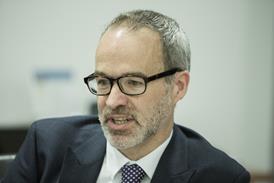The must-read stories and debate in health policy and leadership.
When MP Rosie Cooper gets the bit between her teeth, Liverpool’s NHS leaders better beware.
The former chair of Liverpool Women’s Hospital Foundation Trust is a highly influential figure on Merseyside, having helped expose serious patient safety issues within the city’s community services, and highlighting issues that led to leadership changes at Liverpool Clinical Commissioning Group.
Her latest concern is the recruitment process for a new chief executive at Liverpool University Hospitals Foundation Trust, for which interviews are being held today.
When the trust appointed its last CEO in 2019, candidates gave presentations to 50 local stakeholders, such as staff representatives, local authority figures, and other organisations that work with the trust.
But in the latest process, the trust said it modified its approach “to reflect covid restrictions and good infection and control practices, including limiting the number of people meeting face to face in one room”.
Candidates were instead given a contact list of board members, staff, partners and stakeholders with whom they could choose to organise a one-to-one meeting before interview, with information from the meetings fed back to the appointment panel.
But Ms Cooper, MP for West Lancashire, told HSJ she was concerned about the appointment being made without significant input from stakeholders.
She added: “No one knows who was longlisted, no one knows who’s being interviewed on Tuesday. I cannot understand what they are frightened of, or what they’re hiding.”
LUHFT said it took advice on the process from NHS England and Hunter Healthcare recruitment agency and that 559 staff, 12 governors, and 12 stakeholders had provided responses to a consultation about the characteristics and qualities needed in the new CEO, which was used to shape the job description.
It said the role was publicly advertised and staff have been updated at various stages.
It seems as though the trust is determined to plough ahead, but it should not expect Ms Cooper to drop the issue any time soon.
Called in for a consult
There are two major projects facing the NHS at this moment: forming integrated care systems and the backlog recovery.
It is sub-optimal that these two vital enterprises are happening at the same time rather than consecutively because ICSs will have to do a considerable amount of work now to plan how they are going to deliver NHS England’s elective recovery programme over the coming year.
Never mind that ICSs are not yet statutory entities nor have they appointed their executive boards. And never mind that the elective recovery plan has still not been published because of “an increasingly acrimonious dispute in government and NHS England about how quickly waiting lists can be returned to pre-pandemic levels”.
NHS England therefore has procured the services of seven management consultancy firms on behalf of the 42 ICSs in England. The health systems can draw on the consultancies for “analytical and planning support”. The contract with the consultancies runs from 1 February to 31 March worth up to £21m – that is up to £500k for each ICS. There is the option to extend, for a further six months, again at £500k for each system taking the potential total value of the contract to £42m.
Some have found the decision of the centre to again turn to the big beasts of the consultancy world somewhat galling. However, others have said bringing in external resources was inevitable, pointing to the limited capacity of ICS teams exhausted after two years working flat out.
Also on hsj.co.uk today
Let The Primer give you a quickfire guide to health coverage beyond HSJ, and in our news section, read how waiting lists have ballooned after the suspension of a private provider.

























No comments yet